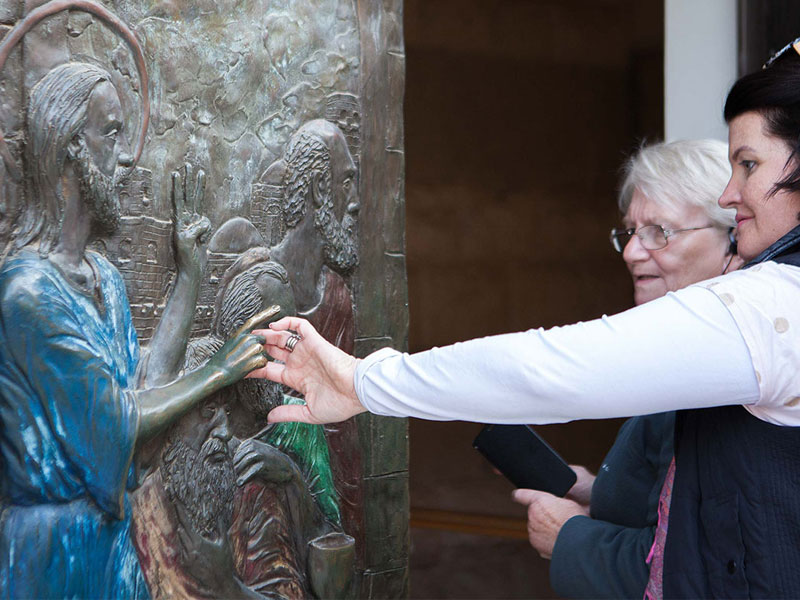Why Was Jesus Not Welcomed in His Hometown? The small town of Nazareth, nestled in the hills of modern-day Israel, holds a significant place in Christian tradition as the hometown of Jesus Christ. Despite its humble size, Nazareth is steeped in history, mystery, and legend.
Here, we uncover some of the shocking secrets and lesser-known facts about the place where Jesus spent his early years.
Shocking Secrets About the Hometown of Jesus Christ
1. Nazareth Was Once a Tiny, Overlooked Village
Contrary to its present-day recognition as a major pilgrimage site, Nazareth was once a small, unremarkable village. Archaeological evidence suggests that during the time of Jesus, Nazareth had a population of only a few hundred people. It was considered so insignificant that it was not mentioned in any contemporary historical records outside of the Bible. This obscurity has led some scholars to question the accuracy of the Biblical accounts, sparking debates about the real significance of Nazareth in Jesus’s life.

2. The Hidden Tombs Beneath the Town: Why Was Jesus Not Welcomed in His Hometown?
Beneath the bustling streets of modern Nazareth lie ancient secrets, including a network of tombs dating back to the first century. These tombs, discovered in the 1950s during construction work, are believed to be part of a Jewish burial ground from the time of Jesus. One of the most intriguing discoveries was a series of rock-cut tombs, some of which contained human remains. These findings provide a glimpse into the funerary practices of the time and suggest that Nazareth may have been more developed than previously thought.
3. Hometown of Jesus Christ: The Controversial House of Jesus
In 2009, archaeologists made a startling discovery beneath a convent in Nazareth: the remains of a first-century house. Some experts believe that this could be the very house where Jesus grew up with Mary and Joseph. The house features a courtyard, a water cistern, and fragments of pottery, all indicative of a typical Jewish home from that era. While the claim is still debated, the discovery has reignited interest in Nazareth’s archaeological significance and has drawn thousands of pilgrims to the site.
4. Hometown of Jesus Christ: Nazareth’s Role in Early Christian Persecution
While Nazareth is now revered as the hometown of Jesus, it was not always a safe haven for early Christians. After the crucifixion of Jesus, his followers faced intense persecution, and Nazareth was no exception. Roman authorities and local Jewish leaders often targeted Christians, leading to secret gatherings and the construction of hidden worship sites. The fear of persecution forced early Christians to practice their faith in secrecy, with Nazareth becoming a focal point of their underground resistance.

5. The Disappearance of Jesus’s Siblings from Historical Records
The New Testament mentions that Jesus had brothers and sisters, yet historical records about them are almost nonexistent. Some traditions suggest that his siblings played significant roles in the early Christian church, but their names and stories have largely been lost to history. This absence of information has led to speculation about their fate, with some theorizing that they were deliberately omitted from records to protect them from persecution, while others believe their lives simply did not attract the same attention as Jesus’s ministry.
6. Hometown of Jesus Christ: The Mysterious Virgin’s Spring
One of Nazareth’s most enigmatic sites is the Virgin’s Spring, also known as Mary’s Well. According to tradition, this is where the Angel Gabriel appeared to Mary to announce that she would bear the Son of God. However, the exact location of this well has been the subject of debate for centuries. While the well now stands as a popular pilgrimage site, some historians argue that the original spring may have been located elsewhere in Nazareth, hidden beneath layers of modern development.

7. Hometown of Jesus Christ: The Influence of Pagan Cults in Nazareth
Before becoming a predominantly Jewish village, Nazareth may have been influenced by pagan cults and rituals. Archaeological discoveries in the surrounding regions suggest that various pagan deities were worshipped in the area long before the arrival of monotheistic religions. These influences may have lingered in Nazareth during Jesus’s time, contributing to the diverse religious landscape of the region. This mixture of beliefs might have shaped the spiritual environment in which Jesus was raised.
Nazareth, the modest hometown of Jesus Christ, is a place where history and mystery intertwine. From its humble beginnings as a tiny village to its role in early Christian persecution and the possible remains of Jesus’s childhood home, Nazareth holds many secrets waiting to be uncovered.
These shocking revelations enrich our understanding of the past and deepen the intrigue surrounding the life of one of history’s most significant figures.
Why Was Jesus Not Welcomed in His Hometown?
Why Was Jesus Not Welcomed in His Hometown? The story of Jesus not being welcomed in his hometown, Nazareth, is a significant event in the New Testament and is mentioned in all four Gospels.
Despite being born and raised in Nazareth, Jesus faced rejection when he returned to his hometown to preach. This rejection is deeply symbolic and offers profound insights into human nature, the challenges of prophecy, and the complexities of faith.
1. Familiarity Breeds Contempt: Why Was Jesus Not Welcomed in His Hometown?
One of the primary reasons Jesus was not welcomed in Nazareth is rooted in the adage “familiarity breeds contempt.” The people of Nazareth had known Jesus since he was a child. To them, he was the son of Joseph, the carpenter, and Mary, a local woman. They saw him grow up, work, and live as any other villager. When Jesus returned to Nazareth and began preaching, performing miracles, and proclaiming himself as the Messiah, the people struggled to reconcile this with the image they had of him as a local boy. They questioned how someone they had known so well could suddenly claim divine authority.

In Mark 6:3, the crowd’s skepticism is evident: “Isn’t this the carpenter? Isn’t this Mary’s son and the brother of James, Joseph, Judas, and Simon? Aren’t his sisters here with us?” Their familiarity with Jesus’s human life led them to doubt his divine mission, resulting in a lack of faith and acceptance.
2. The Challenge of Prophets in Their Hometowns
Jesus himself acknowledged this phenomenon, stating in Mark 6:4, “A prophet is not without honor except in his own town, among his relatives, and in his own home.” This statement reflects the broader challenge that many prophets face when delivering their messages in their own communities. Prophets often call for repentance, change, and a reorientation of values, which can be unsettling for those who are comfortable with the status quo.

Why Was Jesus Not Welcomed in His Hometown? In Nazareth, Jesus’s teachings and claims to be the Messiah were radical and challenging.
The townspeople were likely uncomfortable with the implications of his message, which required them to acknowledge their own sins and shortcomings. The resistance to change, combined with their preconceived notions about Jesus, led to his rejection.
3. Why Was Jesus Not Welcomed in His Hometown? Human Resistance to Divine Truth
Another underlying reason for Jesus’s rejection in Nazareth is the broader human resistance to divine truth. Jesus’s message was revolutionary, calling for a complete transformation of life, faith, and society. For many in Nazareth, accepting Jesus’s teachings would have required a radical shift in their beliefs and practices. This was not an easy demand, especially from someone they viewed as one of their own.

Moreover, the people of Nazareth may have struggled with the concept of God choosing one of their own as the Messiah. They likely expected the Messiah to come from a more prestigious or powerful background, not from a humble carpenter’s family. This expectation made it difficult for them to accept Jesus as the fulfillment of prophetic promises.
4. Why Was Jesus Not Welcomed in His Hometown? The Consequences of Unbelief

The Gospels note that due to their lack of faith, Jesus could not perform many miracles in Nazareth (Mark 6:5-6). The rejection in his hometown serves as a stark reminder of the consequences of unbelief. Jesus’s power to heal and perform miracles was often linked to the faith of those around him. The skepticism and doubt in Nazareth limited the townspeople’s ability to experience the fullness of Jesus’s divine power.
Read more: Is the Turin Shroud exhibition tour haunted?